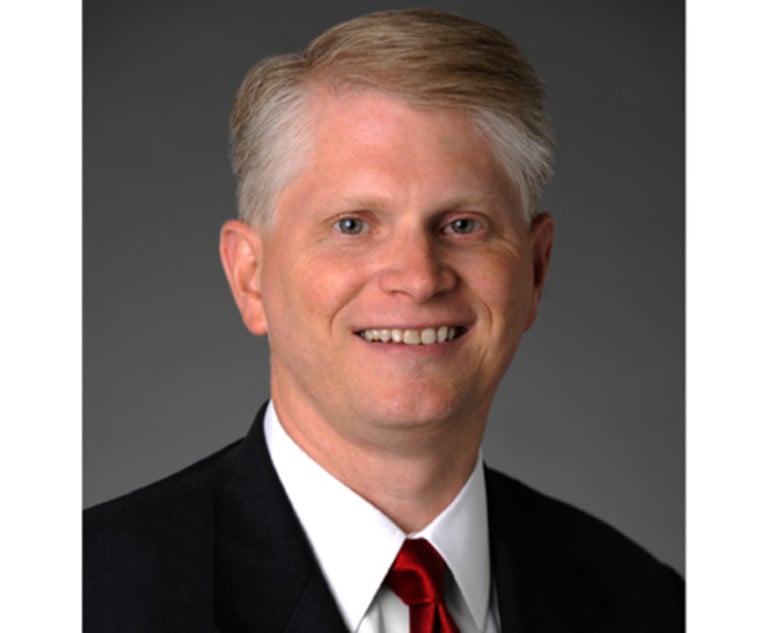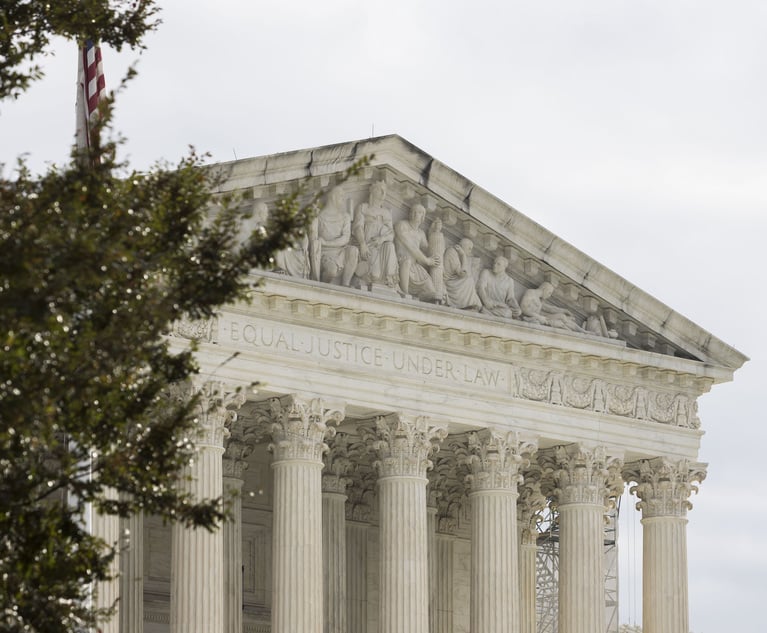 William F. Johnson
William F. Johnson SEC Expands Disclosure Focus on Reputation and ESG Issues
Recent events suggest that the SEC may bring enhanced scrutiny to companies' disclosure on issues like reputational impact, arguably a more subjective area than business operations and financial performance.
November 03, 2021 at 12:45 PM
12 minute read
Publicly-traded companies face increasing accountability to the socially-conscious general and investing public to promote public good on environmental, social, and corporate governance, so-called "ESG" issues. Recent activity at the Securities and Exchange Commission (SEC) suggests that it is also scrutinizing how companies are handling ESG issues. There are signs that the SEC is taking an increased interest in companies' disclosure of business risks that that could impact their reputation. If true, it would mark an expansion beyond the SEC's traditional focus on false or misleading disclosures about business operations or financial performance. However, even though the public at large has scrutinized corporate behavior and ESG policies in recent years, a question remains whether such behavior and policies are indeed material to investors, the threshold for requiring disclosure. The SEC's focus on corporate behavior comes amidst a period of unprecedented access to advertising and information about companies attributable to social media platforms, as well as unprecedented access to investing. Recent events suggest that the SEC may bring enhanced scrutiny to companies' disclosure on issues like reputational impact, arguably a more subjective area than business operations and financial performance.
Facebook Whistleblower
In October, Frances Haugen, a former data scientist at Facebook, publicized various accusations against her former employer in an interview on 60 Minutes and testimony in Congress. Haugen is also believed to be the individual who recently filed multiple complaints with the SEC hoping to attain whistleblower status. According to those whistleblower complaints, Facebook consistently chose to maximize growth rather than implement safeguards on its platforms. "Whistleblower: Facebook is Misleading the Public on Progress Against Hate Speech, Violence, Misinformation," CBS News, Oct. 4, 2021. Among other allegations, the complaints posit that Facebook relaxed safeguards on content after the 2020 election, which purportedly allowed misinformation to spread and played a role in the January 6 attack on the U.S. Capitol. The complaints further allege that when faced with internal data and research indicating how online platforms have led to violence and perpetuated worsening body image issues in young girls, Facebook systematically and willfully ignored those concerns. Further, according to the complaints, Facebook represented to the public that its artificial intelligence technology would assist with keeping hate speech and violence off its platforms. Thus, at their core, the whistleblower complaints assert that Facebook misled investors with public statements that did not match its internal actions. Facebook has since released multiple statements touting its use of research to identify and alleviate problems that were highlighted in the whistleblower allegations. See, e.g., "Our Comprehensive Approach To Protecting the US 2020 Elections Through Inauguration Day," Facebook press release (Oct. 22, 2021); "Our Approach to Maintaining a Safe Online Environment in Countries at Risk," Facebook press release (Oct. 23, 2021); "Hate Speech Prevalence has Dropped by Almost 50% on Facebook," Facebook press release (Oct. 17, 2021); "Advancing Our Policies on Online Bullying and Harassment," Facebook press release (Oct. 13, 2021).
This content has been archived. It is available through our partners, LexisNexis® and Bloomberg Law.
To view this content, please continue to their sites.
Not a Lexis Subscriber?
Subscribe Now
Not a Bloomberg Law Subscriber?
Subscribe Now
NOT FOR REPRINT
© 2025 ALM Global, LLC, All Rights Reserved. Request academic re-use from www.copyright.com. All other uses, submit a request to [email protected]. For more information visit Asset & Logo Licensing.
You Might Like
View All


Class Certification, Cash-Sweep Cases Among Securities Litigation Trends to Watch in 2025
6 minute read
Law Firms Mentioned
Trending Stories
- 1Charlie Javice Fraud Trial Delayed as Judge Denies Motion to Sever
- 2Holland & Knight Hires Former Davis Wright Tremaine Managing Partner in Seattle
- 3With DEI Rollbacks, Employment Attorneys See Potential for Targeting Corporate Commitment to Equality
- 4Trump Signs Executive Order Creating Strategic Digital Asset Reserve
- 5St. Jude Labs Sued for $14.3M for Allegedly Falling Short of Purchase Expectations
Who Got The Work
J. Brugh Lower of Gibbons has entered an appearance for industrial equipment supplier Devco Corporation in a pending trademark infringement lawsuit. The suit, accusing the defendant of selling knock-off Graco products, was filed Dec. 18 in New Jersey District Court by Rivkin Radler on behalf of Graco Inc. and Graco Minnesota. The case, assigned to U.S. District Judge Zahid N. Quraishi, is 3:24-cv-11294, Graco Inc. et al v. Devco Corporation.
Who Got The Work
Rebecca Maller-Stein and Kent A. Yalowitz of Arnold & Porter Kaye Scholer have entered their appearances for Hanaco Venture Capital and its executives, Lior Prosor and David Frankel, in a pending securities lawsuit. The action, filed on Dec. 24 in New York Southern District Court by Zell, Aron & Co. on behalf of Goldeneye Advisors, accuses the defendants of negligently and fraudulently managing the plaintiff's $1 million investment. The case, assigned to U.S. District Judge Vernon S. Broderick, is 1:24-cv-09918, Goldeneye Advisors, LLC v. Hanaco Venture Capital, Ltd. et al.
Who Got The Work
Attorneys from A&O Shearman has stepped in as defense counsel for Toronto-Dominion Bank and other defendants in a pending securities class action. The suit, filed Dec. 11 in New York Southern District Court by Bleichmar Fonti & Auld, accuses the defendants of concealing the bank's 'pervasive' deficiencies in regards to its compliance with the Bank Secrecy Act and the quality of its anti-money laundering controls. The case, assigned to U.S. District Judge Arun Subramanian, is 1:24-cv-09445, Gonzalez v. The Toronto-Dominion Bank et al.
Who Got The Work
Crown Castle International, a Pennsylvania company providing shared communications infrastructure, has turned to Luke D. Wolf of Gordon Rees Scully Mansukhani to fend off a pending breach-of-contract lawsuit. The court action, filed Nov. 25 in Michigan Eastern District Court by Hooper Hathaway PC on behalf of The Town Residences LLC, accuses Crown Castle of failing to transfer approximately $30,000 in utility payments from T-Mobile in breach of a roof-top lease and assignment agreement. The case, assigned to U.S. District Judge Susan K. Declercq, is 2:24-cv-13131, The Town Residences LLC v. T-Mobile US, Inc. et al.
Who Got The Work
Wilfred P. Coronato and Daniel M. Schwartz of McCarter & English have stepped in as defense counsel to Electrolux Home Products Inc. in a pending product liability lawsuit. The court action, filed Nov. 26 in New York Eastern District Court by Poulos Lopiccolo PC and Nagel Rice LLP on behalf of David Stern, alleges that the defendant's refrigerators’ drawers and shelving repeatedly break and fall apart within months after purchase. The case, assigned to U.S. District Judge Joan M. Azrack, is 2:24-cv-08204, Stern v. Electrolux Home Products, Inc.
Featured Firms
Law Offices of Gary Martin Hays & Associates, P.C.
(470) 294-1674
Law Offices of Mark E. Salomone
(857) 444-6468
Smith & Hassler
(713) 739-1250






